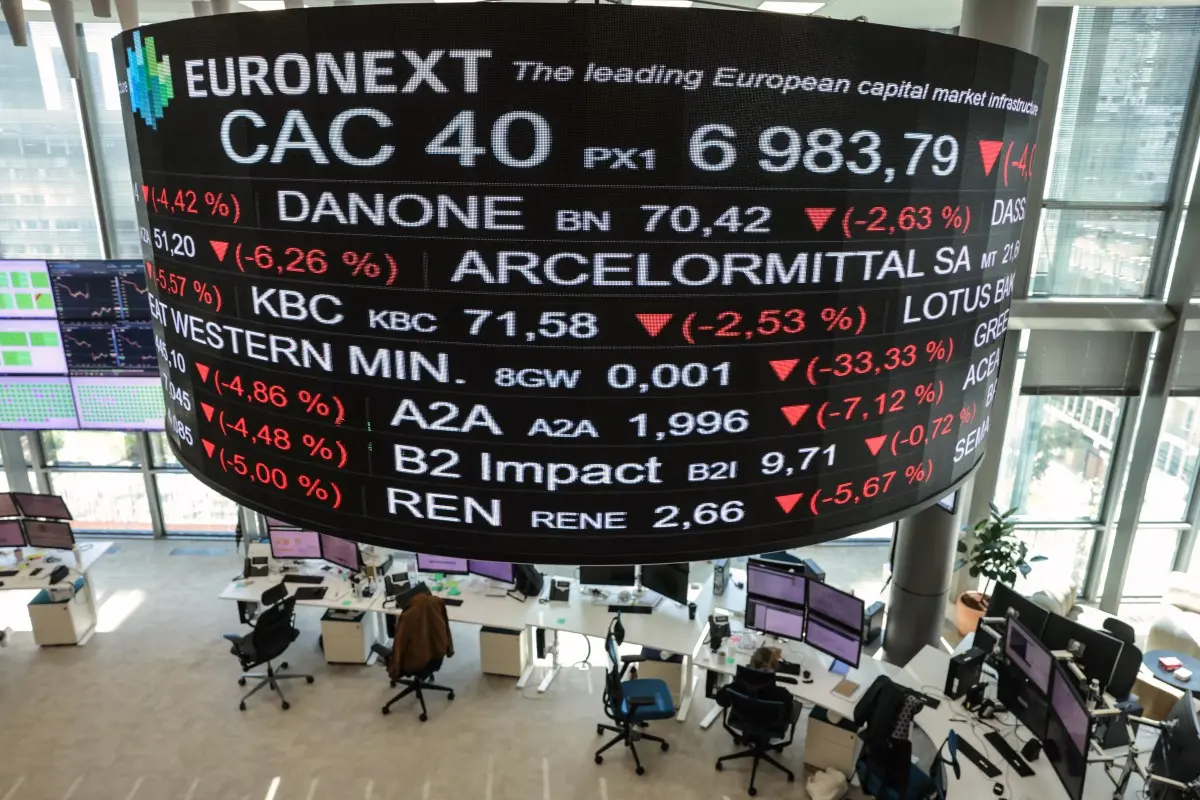
Wall Street, Europe mixed as investors digest renewed US government funding, delayed economic data, AI-sector concerns, and shifting currency and oil dynamics….
Stock markets were broadly weaker on Thursday despite the resolution of the United States’ longest-ever government shutdown, which ended after President Donald Trump signed a new spending bill.
Trading opened lower on Wall Street, where the tech-focused Nasdaq fell more than one percent. Chipmaker Nvidia slid 2.8 percent, while both the Dow Jones Industrial Average and the S&P 500 dipped by around half a percent.
European markets were similarly downbeat. London and Frankfurt slid nearly one percent as the continent approached the closing bell. Paris, however, bucked the trend, climbing 0.4 percent in late trade.
“Whether the shutdown truly weighed on equities is debatable, stocks actually rallied through much of it,” noted Fawad Razaqzada, a market analyst at StoneX. “The bigger question now is whether the market’s recent optimism has peaked.”
US markets had ended mostly higher on Wednesday, with the Dow hitting another record amid signs that investors were rotating out of tech and into industrial stocks.
In Britain, London’s FTSE 100 shed ground after fresh data showed the UK economy slowed in the third quarter, an unwelcome development for the Labour government ahead of its upcoming budget announcement. Fashion house Burberry briefly surged about five percent before edging back, following news that its first-half losses narrowed thanks to aggressive cost-cutting measures.
Across Asia, markets offered a mixed picture. Tokyo, Hong Kong, Shanghai, Seoul, Singapore, Mumbai, Manila, Bangkok, and Jakarta all advanced, while Sydney, Wellington, and Taipei retreated.
AI Sector and US Data Concerns
US lawmakers voted Wednesday to end the 43-day shutdown, which had halted key government services and frozen the release of vital economic indicators. Investors are now awaiting delayed data, critical as the Federal Reserve prepares to decide whether to cut interest rates next month.
However, the White House warned that October’s jobs and consumer price reports may not be published, as agencies were unable to collect the necessary data during the closure.
At the same time, analysts say the year-long rally driven by artificial intelligence stocks may be showing signs of overheating, raising fears of inflated valuations across the tech sector.
Currency Moves and Oil Prices
In Japan, investors watched currency movements closely after Finance Minister Satsuki Katayama signaled that authorities were monitoring the yen’s renewed weakness. The currency came under additional pressure following dovish remarks from the Bank of Japan, which trimmed expectations of another rate hike.
Oil prices rebounded after a roughly four percent plunge on Wednesday. The latest OPEC monthly report now forecasts a third-quarter oversupply, reversing last month’s prediction of a deficit. Easing Middle East tensions and higher production among major oil suppliers have added further downward pressure. The International Energy Agency, meanwhile, expects a record surplus in 2026.
KEY FIGURES (as of 14:45 GMT)
- New York – Dow: ↓ 0.3% at 48,119.57
- New York – S&P 500: ↓ 0.7% at 6,805.78
- New York – Nasdaq: ↓ 1.1% at 23,145.50
- London – FTSE 100: ↓ 0.8% at 9,835.51
- Paris – CAC 40: ↑ 0.4% at 8,274.47
- Frankfurt – DAX: ↓ 0.7% at 24,215.79
Asian closes:
- Tokyo – Nikkei 225: ↑ 0.4% at 51,281.83
- Hong Kong – Hang Seng: ↑ 0.6% at 27,073.03
- Shanghai – Composite: ↑ 0.7% at 4,029.50
Currency markets:
- Dollar/yen: ↓ to ¥154.66
- Euro/dollar: ↑ to $1.1620
- Pound/dollar: ↑ to $1.3170
- Euro/pound: ↓ to 88.23 pence
Oil:
- Brent Crude: ↑ 1.0% at $63.34
- WTI: ↑ 1.0% at $59.08



